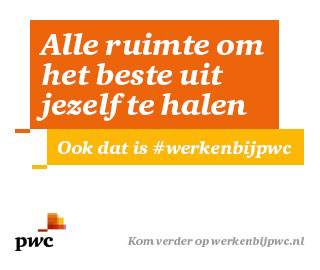As Dutch students, we should be happy with our study loans. This provision gives almost everyone the opportunity to study. The base grant is not available anymore since a couple of years however, which makes students assigned on a loan. Not everybody is that eager of getting into debt for a degree.
As a matter of fact, a major part of the students is not afraid of debt. Many “loan buddies” are greedily looking forward to the 24th of the month to receive an amount of over one thousand euros from their cherished uncle DUO (read: government), after which they express joy with mottos like “lending maximally is living maximally”. Every single cent of it is vanished by the end of the month and a significant part of it is drained into nightlife. Few students seem to be bothered, as the repayment term of 35 years is no big deal with their future salaries. Besides, there is the group that make use of the student loan rather carefully. This group is more receptive to the argument that everything has to be repaid one day and will try to avoid lending by any means. I think we can state that this approach is more responsible than the loan buddies’, but I believe this fear for lending is partly unjustified.
Firstly, let us clarify that there is no better institution to owe a debt to than DUO. The government will never take your money if your salary is too low, the clauses for repaying are favourable and BKR does not register this debt. Then there is the interest, or the lack of it. The rate is currently 0%. Although this will change on short notice, it is not likely to raise rapidly. This measure probably does not affect current students and after graduation, the interest rate is fixed for 5 years. Besides, the loan is a favour of the government and therefore the rate will always be lower than that of private institutions.
Smart students borrow from DUO to save for that specific reason. The benefit is one of the base principles of economics: the time value of money. In a healthy economy, it is better to have an amount of money now than the same amount of money later. One argument for that is the possibility to earn yields with this money. (Beware on investing with lend money, high leverages can be created). The savings rate is certainly not impressive now, but it is still more than the debt rate. In fact, you can earn money with your debt without any risk. Another argument is financial freedom. The possibility to spend money, even though it is not yours, has a value too. This is exactly why people are willing to pay interest to make expensive purchases like cars and electronics now. DUO gives students this benefit for free. If inflation is considered, one can even buy more now with borrowed money than at the moment it has to be repaid.
”Banks cannot access information about your student loan, but they do consider it when calculating the maximum amount.”
From this perspective, loan buddies are not that foolish at all. They bring their future wealth forward without even paying for it. The smile on their faces is exactly what illustrates the time value of money. For example, students who used the loan more economically could use their savings to buy a car or furniture for their first house. Banks and credit companies are not that friendly and one would be better off to have some reserves from uncle DUO. Moreover, these reserves can be repaid at any time if the interest rises. The only point of criticism is on taking out a mortgage. Banks cannot access information about your student loan, but they do consider it when calculating the maximum amount. You have to be honest about it, or certain guarantees may be at stake. Do not blame me if I am wrong, but I expect this to be better in the future, as few students finish their studies unharmed nowadays.
The provision’s purpose is to finance your study and therefor my advice is not for every student to lend as much as possible. However, I do want to emphasize that it is wise to make use of the loan in many cases, now that the government is that generous currently. For a student with savings for instance, I recommend to lend money to maintain this savings rather than to drain this savings first. In any case, it is provided that one should borrow money responsibly and consciously of the consequences. If you decided that you prefer having a little more money now over the future and you are aware of the risk of increasing interest rates etcetera, you made the right choice. Likewise, if you still do not have a good feeling on lending money and you decide not to do so, despite the advantages mentioned above. The most important insight is that the system at its present form is not as bad as many argue.

















